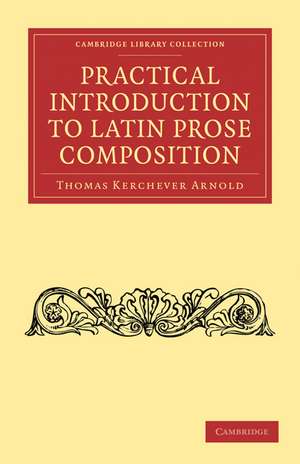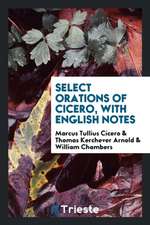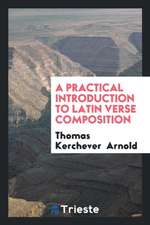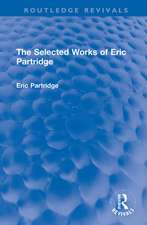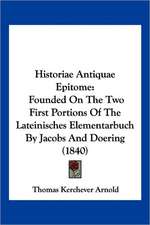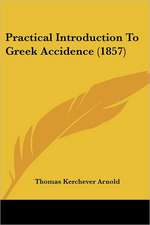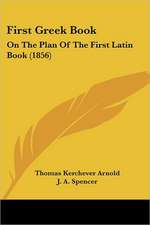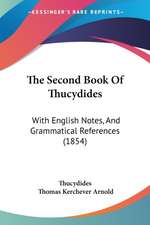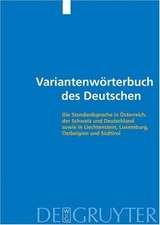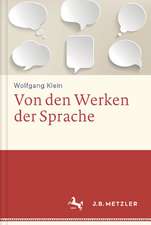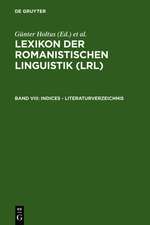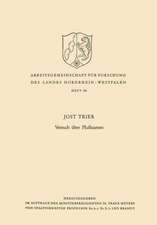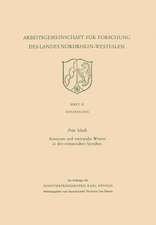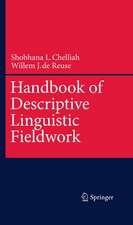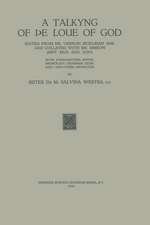Practical Introduction to Latin Prose Composition: Cambridge Library Collection - Classics
Autor Thomas Kerchever Arnolden Limba Engleză Paperback – 19 mai 2010
Din seria Cambridge Library Collection - Classics
-
 Preț: 190.89 lei
Preț: 190.89 lei - 15%
 Preț: 406.99 lei
Preț: 406.99 lei -
 Preț: 173.84 lei
Preț: 173.84 lei - 23%
 Preț: 1994.62 lei
Preț: 1994.62 lei - 23%
 Preț: 1663.03 lei
Preț: 1663.03 lei - 23%
 Preț: 1380.34 lei
Preț: 1380.34 lei - 23%
 Preț: 1368.85 lei
Preț: 1368.85 lei -
 Preț: 342.69 lei
Preț: 342.69 lei - 5%
 Preț: 13881.42 lei
Preț: 13881.42 lei - 19%
 Preț: 544.37 lei
Preț: 544.37 lei -
 Preț: 349.59 lei
Preț: 349.59 lei - 23%
 Preț: 748.69 lei
Preț: 748.69 lei -
 Preț: 374.96 lei
Preț: 374.96 lei - 19%
 Preț: 688.41 lei
Preț: 688.41 lei - 19%
 Preț: 643.69 lei
Preț: 643.69 lei -
 Preț: 519.66 lei
Preț: 519.66 lei - 19%
 Preț: 495.90 lei
Preț: 495.90 lei -
 Preț: 368.30 lei
Preț: 368.30 lei -
 Preț: 368.30 lei
Preț: 368.30 lei -
 Preț: 367.54 lei
Preț: 367.54 lei -
 Preț: 465.21 lei
Preț: 465.21 lei -
 Preț: 531.54 lei
Preț: 531.54 lei -
 Preț: 445.49 lei
Preț: 445.49 lei -
 Preț: 281.33 lei
Preț: 281.33 lei -
 Preț: 377.01 lei
Preț: 377.01 lei -
 Preț: 367.33 lei
Preț: 367.33 lei -
 Preț: 421.20 lei
Preț: 421.20 lei -
 Preț: 282.25 lei
Preț: 282.25 lei -
 Preț: 429.94 lei
Preț: 429.94 lei -
 Preț: 465.98 lei
Preț: 465.98 lei -
 Preț: 332.07 lei
Preț: 332.07 lei -
 Preț: 367.71 lei
Preț: 367.71 lei -
 Preț: 519.83 lei
Preț: 519.83 lei -
 Preț: 518.30 lei
Preț: 518.30 lei -
 Preț: 241.66 lei
Preț: 241.66 lei
Preț: 286.20 lei
Nou
Puncte Express: 429
Preț estimativ în valută:
54.77€ • 59.47$ • 46.01£
54.77€ • 59.47$ • 46.01£
Carte tipărită la comandă
Livrare economică 23 aprilie-07 mai
Preluare comenzi: 021 569.72.76
Specificații
ISBN-13: 9781108011419
ISBN-10: 1108011411
Pagini: 236
Dimensiuni: 140 x 216 x 14 mm
Greutate: 0.3 kg
Editura: Cambridge University Press
Colecția Cambridge University Press
Seria Cambridge Library Collection - Classics
Locul publicării:Cambridge, United Kingdom
ISBN-10: 1108011411
Pagini: 236
Dimensiuni: 140 x 216 x 14 mm
Greutate: 0.3 kg
Editura: Cambridge University Press
Colecția Cambridge University Press
Seria Cambridge Library Collection - Classics
Locul publicării:Cambridge, United Kingdom
Cuprins
Preparatory tables; 1. Nominative case and verb; 2. Accusative with infinitive; 3. Accusative with infinitive continued; 4. Agreement of adjective with substantive; 5. The relative; 6. Infinitive used substantively; 7 Relative continued; 8. Relative continued; 9. Relative continued; 10. Ut, ne expressing a purpose; 11. Ut expressing a consequence; 12. English infinitive translated by ut with subj.; 13. Ut, &c. continued; 14. Quin after negative sentences; 15. Quominus; 16. Interrogative sentences; 17. Interrogative words; 18. Dependent questions; 19. Double questions; 20. May, can, &c. as principal verbs; 21. Apposition; 22. Nominative after the verb; 23. Dative after esse; 24. The genitive; 25. The genitive continued; 26. The genitive after adjectives; 27. The genitive continued; 28. The genitive continued; 29. The genitive continued; 30. The dative; 31. The dative continued; 32. The dative continued; 33. The dative continued; 34. Verbs that take a second dative; 35. The accusative; 36. The accusative continued; 37. The ablative; 38. The ablative continued; 39. The vocative; 40. The passive voice; 41. The passive voice continued; 42. Time; 43. Place; 44. Gerunds and partic. in dus; 45. Participles; 46. Participles continued; 47. Participles continued; 48. Pronouns; 49. Pronouns continued; 50. Pronouns continued; 51. Pronouns continued; 52. Comparison; 53. Remarks on some of the tenses; 54. Remarks on the tenses continued; 55. Forms of conditional propositions; 56. Conditional propositions continued; 57. Conditional propositions in dependent sentences; 58. On oblique narration; 59. Oblique narration continued; 60. Qui with subjunctive; 61. Qui with the subjunctive continued; 62. Quum with the indicative; 63. Antequam and priusquam; 64. Dum, donec, quoad, &c.; 65. Quod; 66. The Roman calendar; 67. Connection of propositions by the relative, &c.; 68. On the Roman way of reckoning money; 69. On the division of the As, &c.; Table of differences of idioms, &c.; Questions on the cautions; Questions on the syntax; Indexes.
Descriere
This 1839 introduction contains basic tools for sentence construction in classical Latin and includes vocabulary and revision exercises.
